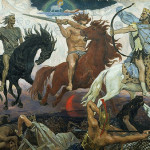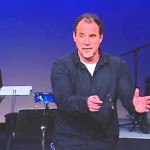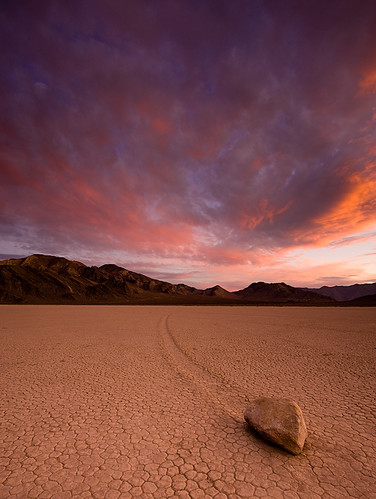We run our website the way we wished the whole internet worked: we provide high quality original content with no ads. We are funded solely by your direct support. Please consider supporting this project.
In the Wilderness of Religion
Eric Bryan via Compfight
There are an awful lot of us in the Church today who are no longer feeling at home in Evangelicalism. Regardless of how you feel about World Vision’s hiring policy decisions, the spectacle of thousands of people discontinuing their child sponsorships (relationships with flesh and blood children in need) because of a theological disagreement left many of us aghast. Is this what American consumerism has done to our faith?
Ed Cyzewski wrote a blog entitled We Know Where to Find Jesus, But What If We Don’t Want to Go There? If you’re feeling like you’re wandering in the wilderness of religion, it might comfort you to know that the wilderness can be a holy place.
From Ed’s blog post:
The riddle of Jesus was as confounding to John as it would be for us today. There’s no doubt that many Christians today would struggle to believe in and follow a religious “leader” like Jesus who wasn’t married, didn’t have a large following, and never assumed any kind of official office or put together an organization/denomination.
Jesus wasn’t organized, systematized, or influential according to our own terms. While he had a certain amount of authority and clout because of his powerful teachings and miracles, he never took on a formal position. That latter point made no sense to John.
I was reminded of these lessons about John from my book Unfollowers when I read a post by Sarah Bessey over the weekend. Sarah gives evangelicals “permission” to step away from labels, traditions, and positions for a season in order to grieve and to rediscover what following Jesus may look like for them. Everything in her post resonates with my own experiences in evangelicalism: the need to grieve its worst parts, the desire for distance and space, and the reassembling of my faith out in the wilderness apart from religious structures.
We don’t get to remake faith according to our own terms. We can only seek out Jesus wherever he may be found, and as the story of John the Baptist teaches us, Jesus spent a lot of time in the wilderness.
Category: General
Tags: Doubt, Ed Cyzewski, Evangelism, Faith, Jesus, Religion, Religious Idolatry, Sarah Bessey, World Vision
Related Reading

Unpacking Revelation: Is it Literal?
According to many scholars as well as many Christian laypeople, the Jesus we find in the book of Revelation engages in a great deal of violence. This violence reaches a zenith in chapter 19 where we find Jesus going out to make war on a white horse (v. 11). He is dressed in a blood…

Do You Need to Starve a Little?
Sarah (Rosenau) Korf via Compfight Here’s a challenging reflection on Ash Wednesday and the beginning of Lent by Kurt Willems. He notes that Lent is a season where we choose to starve ourselves of our little idols in order to join Jesus in the desert, and he lists several benefits of this particular kind of…

The Kingdom of God (Part 2)
The Church is called to be nothing less than “the body of Christ,” a sort of corporate extension of Jesus’ incarnate body. We are called to replicate who Jesus was by manifesting who Jesus is. And this is how we expand the dome in which God is king—the Kingdom of God. By definition, therefore, the…

The Challenge of Malala to the Church
http://youtu.be/f506lCk6Tos I don’t know if you’ve seen this, but it’s Malala Yousafzai appearing on Jon Stewart’s The Daily Show. At the age of 14 Malala was shot in the face at point blank range by the Taliban while riding to school on a bus, all because she wouldn’t stop speaking up for the right of…

Is the Jesus of Revelation Wrathful?
In the second coming of Jesus, will he turn with wrath? Will he come as a roaring lion, ready to put on his display all of his anger, power, and might? What does the Jesus revealed in Revelation look like? This is a short clip that addresses these questions. If you want to watch the…

A Book That Won’t Leave You Unchanged
St. Ignatius of Loyola, the 16th century founder of the Jesuits, taught that to experience the transforming power of Scripture, we need to read it “with all five senses,” using our imagination to get on the inside of the characters and story we’re reading about. A just-released book by Frank Viola and MaryDeMuth entitled “The…

